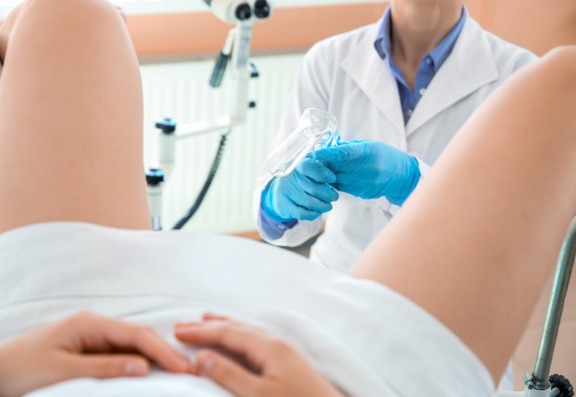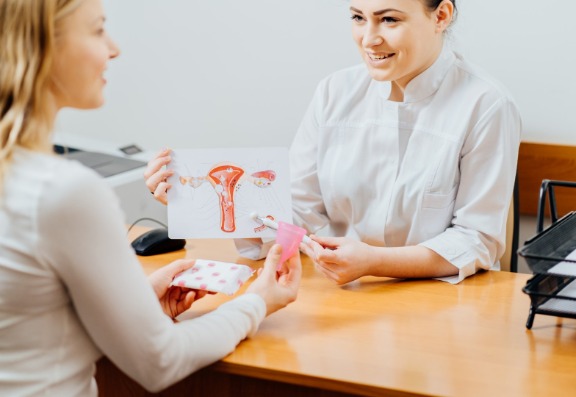The female intimate area (the genital area) has the most sophisticated anatomy and physiology. The micro details of the intricacies of anatomy and physiology are owned by Gynaecologists rather than GPs or junior doctors/medical students.
Dysfunctions of this area are such specialised syllables to Gynaecology. Adequate management of these dysfunctions is beyond the primary care realm and is the reason for referral to Gynaecologists. Examples of these include Vaginismus treatments, urinary stress incontinence (urine leakage), dyspareunia (pain during sex), vaginal dryness and itching, reduced sensation and many more that are linked to post-delivery effects, birth trauma or due to menopause. Which again comes under sheer OB&GY scrutinised knowledge and assessment.
In the past, the available treatment options were either surgical or natural and “conservative” e.g. Kegel’s exercises for pelvic floor muscles or the use of HRT etc. These options do require thorough assessment and case selection with risk vs benefit analysis to get the utmost of the results and avoid side effects/complications.
Then the time came when Gynaecologists thought of exploring the world of Regenerative Medicine (RM). This is already an up-and-running practice for decades- in other medical specialities like sports medicine (injuries) and orthopaedic, arthritis etc attaining very successful results and backed with a gravitas of evidence-based studies.

The principle of RM lies in applying non-surgical techniques to stimulate the regenerative cells of the body to rejuvenate a certain area by improving circulation and enhancing new tissue formation, which subsequently leads to improvement in function as well. Hence, Aesthetic Regenerative Gynaecology non-surgical procedures were developed and are increasingly growing because of the successful results. These procedures are considered a brand-new category of treatment options placed between the surgical and conservative.
In my opinion: Gynaecologists are best qualified and suited to perform Regenerative Gynaecology procedures for the following reasons:

1) Aesthetic Regenerative Gynaecology is a new MEDICAL Specialty where NON-surgical procedures are used to treat Gynaecological symptoms in Women.
Therefore, As for any other treatment option, it is imperative to apply the rules of proper assessment, case selection and counselling by the authorised and trained specialists who know how to employ these procedures in the best possible way for maximum results [1].
Getting the right qualified and trained specialist to do the right procedure for the right patient in the right place with the right outcome [2]. [Clinical Governance and Good Medical Practice rules]
2) It is essential to undertake proper Gynaecological history and examination prior to any procedure. The right standards of assessment can be performed by the Gynaecologist (including performing screening tests for infection or cervical smear etc).
3) Gynaecologists are acquainted with the complicated conditions that affect this particular area. S/he is the ultimate referral specialist to be implored to deal with these difficult conditions.
4) There are rules (and standards) set by both the Royal College of Obstetricians and Gynaecologists (RCOG) and the General Medical Council (GMC) about who is permitted to and the prerequisites before conducting the “Intimate Gynaecological examination” and assessment to ensure best practice. [3,4 and 5]
5) The feminine area’s dysfunctions have usually compounded factors and are notorious for their negative impact on women’s family life, self-esteem and sense of well-being. Women confide in Gynaecologists because they are best suited to appreciate the multifactorial aspects of the problem and are fully trained to manage the complex nature of feminine areas’ dysfunctions.
6) Gynaecologists have a better understanding of the pathophysiology of the various dysfunctional conditions. They are in a privileged position to select the most remedial procedure that is likely to obtain the most successful outcome.
7) Gynaecologists are capable to deliver a holistic approach including understanding, explaining and counselling the condition and various options of treatments with the likelihood of success, side effects, pros and cons of each based on their expertise.
8) The public does trust and in fact prefers to have a specialist to treat them; “The more you know what you are doing, the more you can get the best possible results without risks”.
9) Patients’ safety and risk management. Avoiding complications.
Gynaecologists are vigilant in detecting and monitoring any reported side effects associated with a procedure or an Energy Based Device.
They know how to piece up the collected data together according to the Gynaecological module of building evidence- on each Aesthetic Gynaecology procedure and design a structured research study to enhance evidence-based practice further.

10) Using energy-based devices is promoted by the manufacturers as safe to handle, however, long-term effects remain, in my opinion, to be monitored and confirmed ideally by the most unbiased specialists who act as the standing guards to women’s health. [7]
On July 30, 2018, the U.S. Food and Drug Administration (FDA) issued a warning about energy-based devices used to treat vaginal conditions and symptoms related to menopause, urinary incontinence, or sexual function. Currently, no vaginal laser device or procedure is cleared or approved by the FDA for any of these vaginal issues.
The FDA is concerned that the safety and effectiveness of these devices haven’t been proven in scientific studies and that using the devices could lead to serious side effects, including vaginal scarring and burns.
“We’ve recently become aware of a growing number of manufacturers marketing ‘vaginal rejuvenation’ devices to women and claiming these procedures will treat conditions and symptoms related to menopause, urinary incontinence or sexual function,” said FDA Commissioner Scott Gottlieb, M.D., in a statement. “The procedures use lasers and other energy-based devices to destroy or reshape vaginal tissue. These products have serious risks, therefore, case selection and procedures should be performed by highly experienced gynaecologists.
https://www.breastcancer.org/research-news/fda-issues-warning-on-vagina-laser-tx
References:
1. General Medical Council: “Good Medical Practice”-Revised Guidance. April 29th 2014.
2. Anthony Tarantino, Governance, Risk, and Compliance Handbook, ISBN 978-0-470-09589-8(2008-02-25).
3. Royal College of Obstetricians and Gynaecologists. “Standards for Gynaecology; Report of a Working Party”. London: RCOG 2008.
4. General Medical Council. “Intimate Examinations: Guidance for Doctors”. London: GMC; 2006.
5. Royal College of Obstetricians and Gynaecologists. “Improving Patient Safety: Risk Management for Maternity and Gynaecology”. Clinical Governance Advice No.2, September 2009.
6. Statement from FDA Commissioner Scott Gottlieb, M.D., on efforts to safeguard women’s health from deceptive health claims and significant risks related to devices marketed for use in medical procedures for “vaginal rejuvenation” [news release]. Silver Spring, MD; July 30, 2018: FDA website. http://www.fda.gov/NewsEvents/Newsroom/PressAnnouncements/ucm615130.htm. Accessed July 30, 2018.
If you want to read more, the experts at Consulting Room really know what they're talking about and have put together scarring, PRP injections and non-surgical vulvovaginal rejuvenation FAQs just for you.
If you have more questions, you can use the scarring, PRP injections and non-surgical vulvovaginal rejuvenation questions feature to talk to our panel of trained medical experts.
If you're keen to get started with any of these treatments immediately, then you're in luck. Those clever folks also have a list of trusted, accredited scarring, PRP injections and non-surgical vulvovaginal rejuvenation clinics in your area.
Many thanks to the author of this blog, Dr Nadia Yousri who is the owner of Dr Nadia Yousri OBandGY.
Doctor Nadia Yousri is Triple Qualified OBandGY Surgeon (FRCOG, MRCOG, PhD in OBandGY, Master's Degree in OBandGY, DFSRH) and is a highly qualified and experienced Obstetrician, Gynaecologist, Fertility, Sexual Wellness, Aesthetic Gynaecology and Regenerative Medicine Specialist Consultant.
Call Dr Nadia Yousri now on 0777 576 1050 or visit www.drnyaesthetics.com.

"Non-consensual surgery is more common than industry cares to admit," reveals top UK plastic surgeon.
Halloween is almost here but one thing you shouldn’t feel scared of is having treatment! We spoke to a Dr to get the ultimate guide on what to look out for...
NAYDAYA break intimate health taboos and launch ‘End The Dry Spell’ campaign to end misinformation around vaginal dryness...
Hey, wait!
Before you go.....
Let's stay in touch, pop your details here and we'll send our editor's hand-picked updates on your fave subjects.